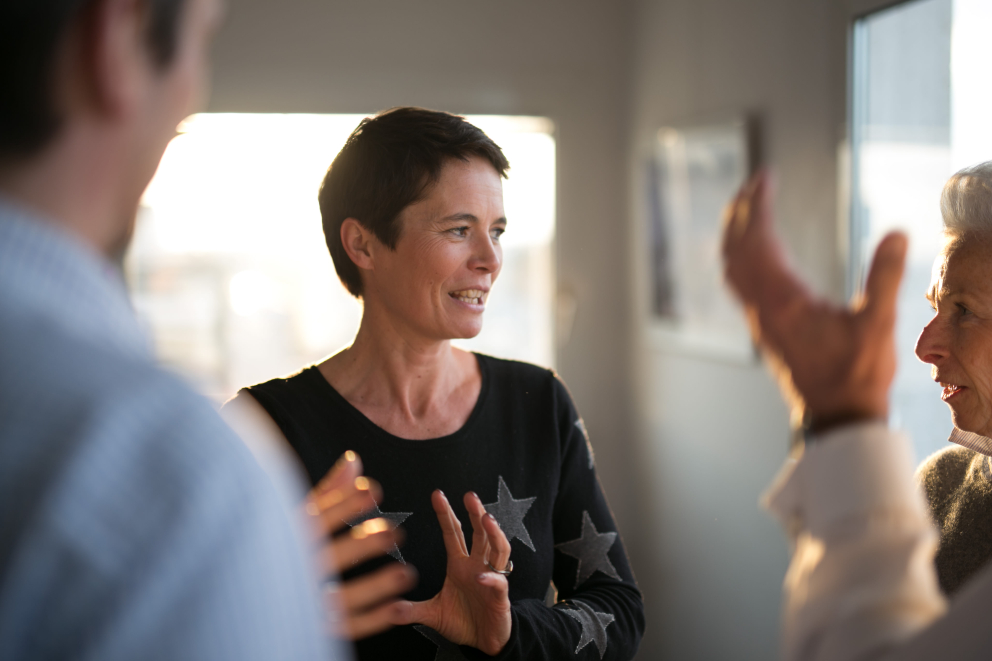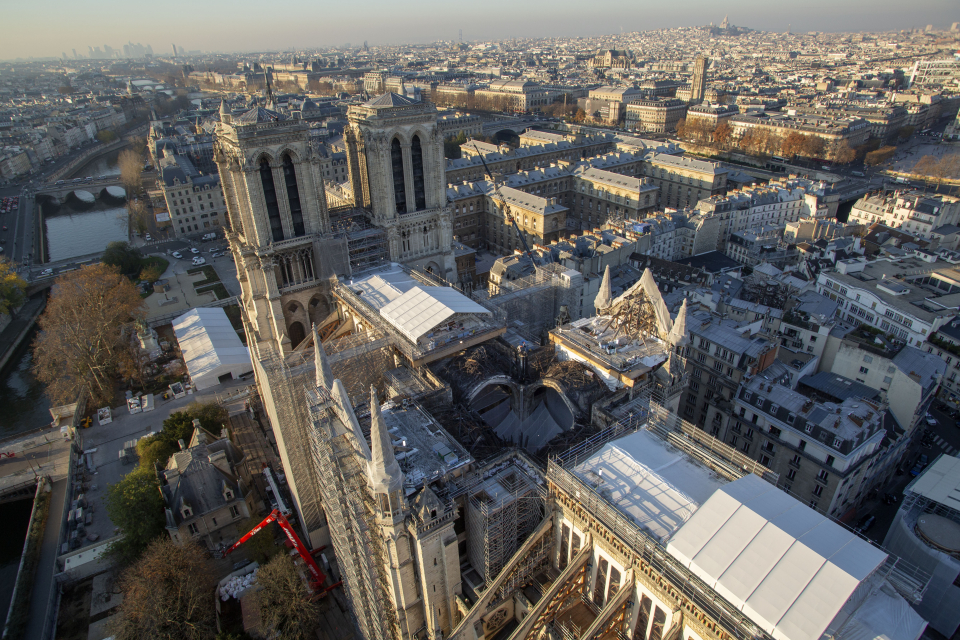Our story
Awarded until 2021, the Prize Coups d’élan pour la recherche française aimed to improve the infrastructure and working conditions of life sciences researchers at INSERM and the CNRS Institute of Biological Sciences. In all, 78 French laboratories and over 900 researchers benefitted from this support.
What we do | Life SciencesA new generation comes to the helm. Françoise Bettencourt Meyers becomes President of the Foundation and Liliane Bettencourt Honorary President.

Support for social inclusion programs
The Foundation funds new associations whose values it shares and whose actions it commends.
- Sport dans la Ville offers young people between the ages of six and 25 sports activities, relying on the power of sport to develop respect for others, team spirit and the desire to surpass themselves.

- Les Jardins de Cocagne uses market gardening land for the purpose of professional and social integration.
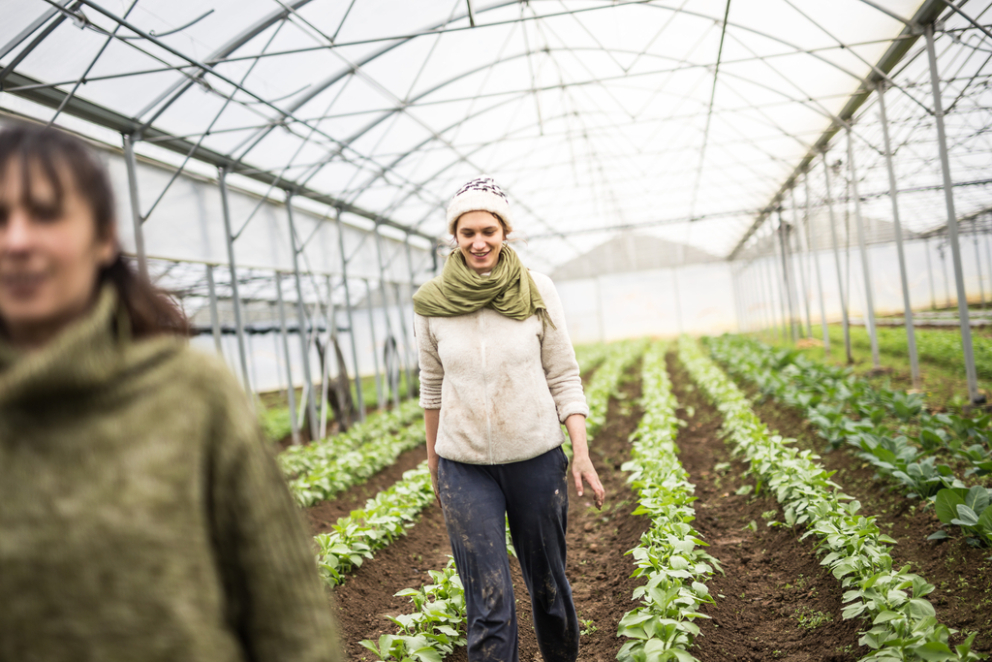
- Simon de Cyrène develops and manages shared homes throughout France where people with and without disabilities live together.
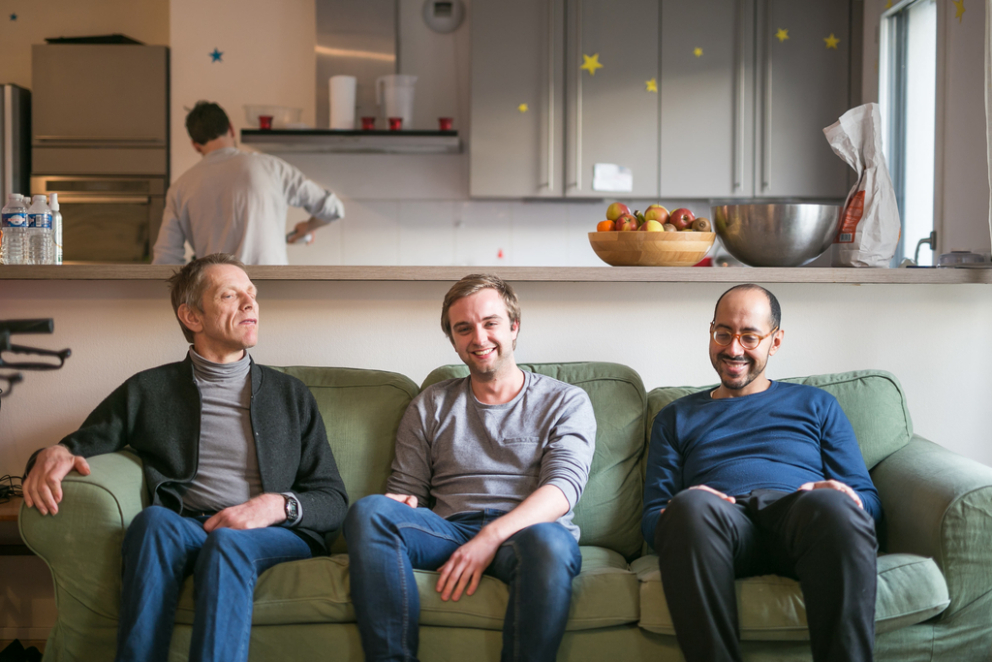
The day after the cathedral fire, Téthys, the Bettencourt Meyers family and the Foundation’s holding company, pledge €100-million to help rebuild the iconic monument. This the logical outcome of an 18-year relationship with the cathedral, a center of craftsmanship and choral singing - two areas where the Foundation is active. Téthys made a €50 million grant to match the same amount from L'Oréal.

Support for the Philharmonie de Paris project Exister par la Voix Ensemble (Existing through Voice Together, EVE)
The Philharmonie de Paris supports the EVE project to breathe new life into choral singing education with an approach that fosters childhood development using a method focusing on the body and self-expression.
A first experimentation stage until 2022, with students from schools located in priority education zones in La Courneuve and Paris, highlights the benefits of regular choral singing for socialization and progress in other areas of learning, particularly language skills. On the strength of this success, in January 2023 the Philharmonie launches the project’s second stage to disseminate the EVE teaching method in the national education system.
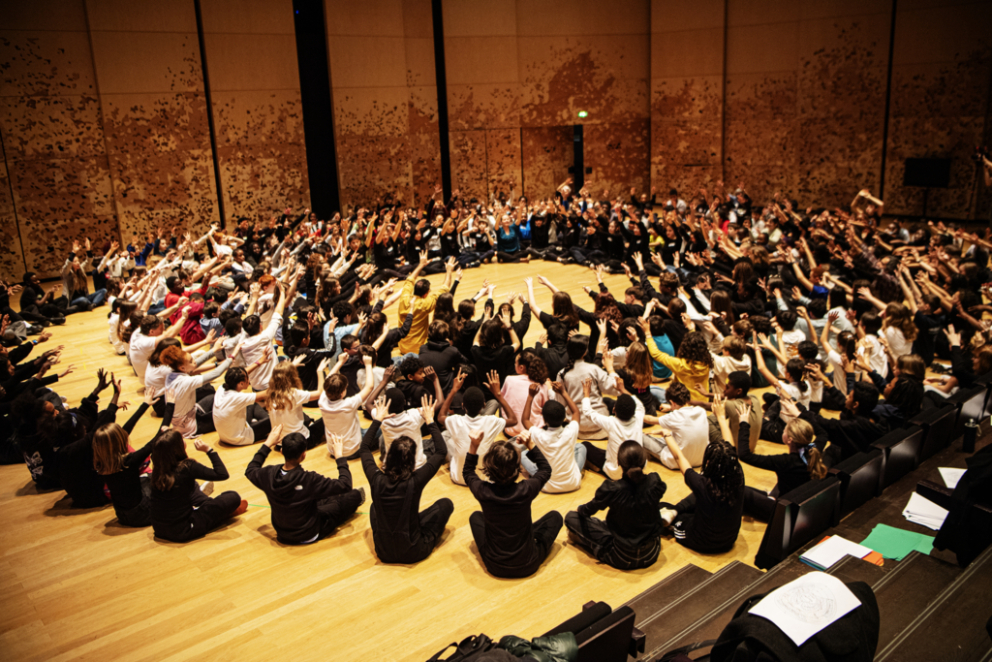
These prizes were the Foundation’s first major initiatives.
The Liliane Bettencourt Prize for Choral Singing
Created in 1989 in partnership with the French Academy of Fine Arts, the Liliane Bettencourt Prize for Choral Singing is bestowed each year on an professional choir or a children's choir, promoting the development and spread of this outstanding artistic discipline.
Read more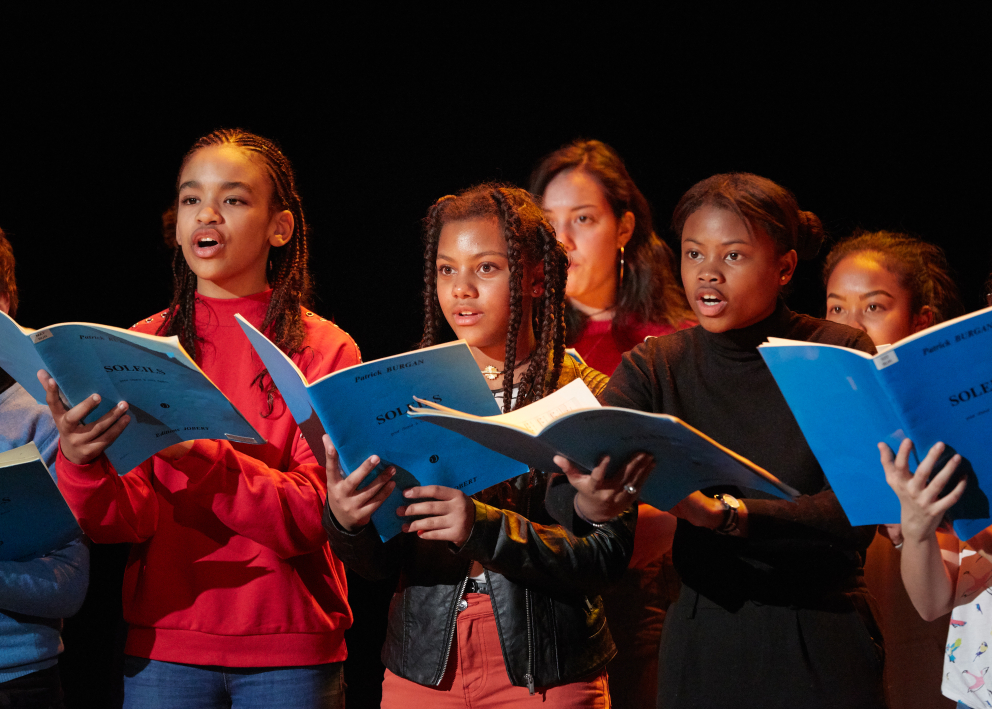
Bettencourt Young Researchers Prize
From 1990 to 2021, the Bettencourt Young Researchers Prize was handed out each year to enable 14 researchers or doctors to complete their postdoctoral fellowships in the world’s best foreign laboratories. In all, 349 people received the prize.
Read more
Shedding light on technological innovation, sharing current research and promoting its applications are among the Foundation’s priorities in its commitment to science. To give its actions a wider echo, it created the Liliane Bettencourt Technological Innovation Chair, whose holder is appointed each year by the assembly of the professors of the Collège de France.
With this multidisciplinary chair, the digital world, big data, technology and its applications become real research topics. The holder’s opening lecture, courses and seminars are video-recorded and streamed online by the Collège de France on digital devices that the Foundation will help develop from 2011 to 2021.
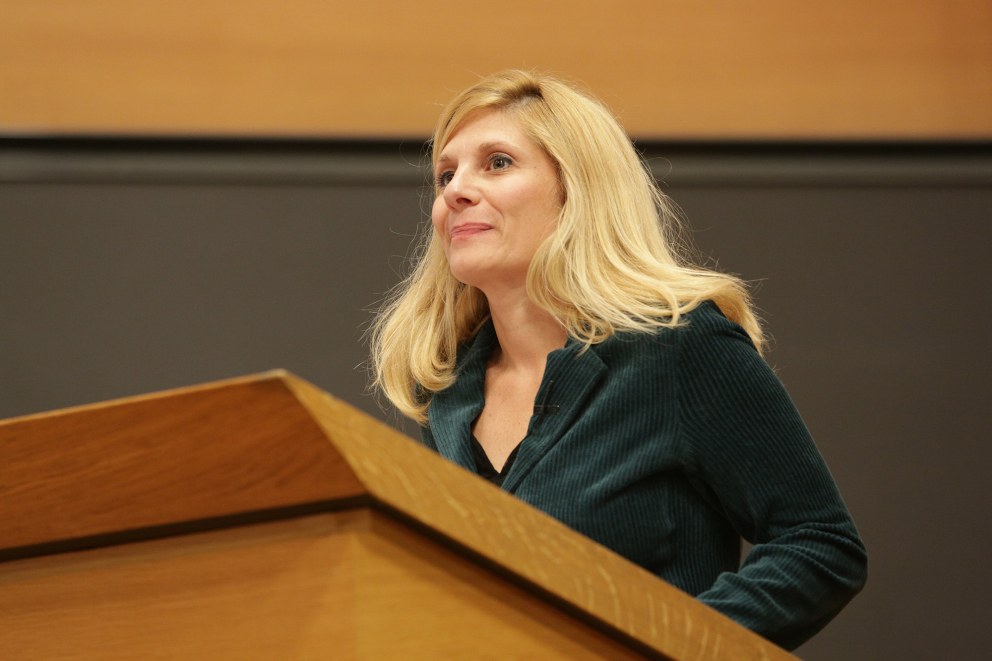
In 1926, ambassador Paul Claudel had the idea of a project to promote French culture and forge ties between France and Japan. His dream came true in 1992 with the Villa Kujoyama in Kyoto.
In 2014, the Foundation became its exclusive patron, opening it up to the world of crafts. Since then, every year the Villa has hosted three artisans for four to six months. To help them make the most of their stay, the Foundation has developed a post-residence program to support projects developed during residencies at the Villa Kujoyama.
Read more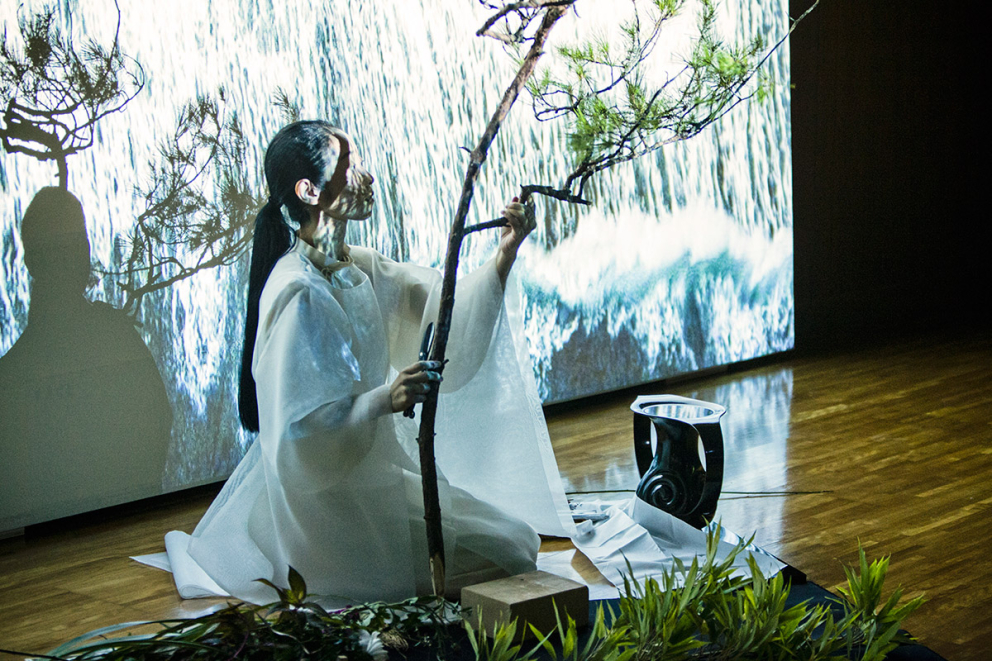
The Villa Albertine and Villa Medici open to craftsmanship thanks to the support of the Foundation. Since 2014, the Foundation has been the exclusive patron of the Villa Kujoyama in Japan. It has decided to support the new Villa Albertine in the United States, opening it to fine crafts.
It also backs a series of projects at the Villa Medici in Rome aimed at promoting contemporary creation in the fine crafts: refurbishment of nine guest rooms in the historic building, creation of a residence dedicated to fine artisans, development of an educational program with French students in vocational courses and so on.
Villa Albertine
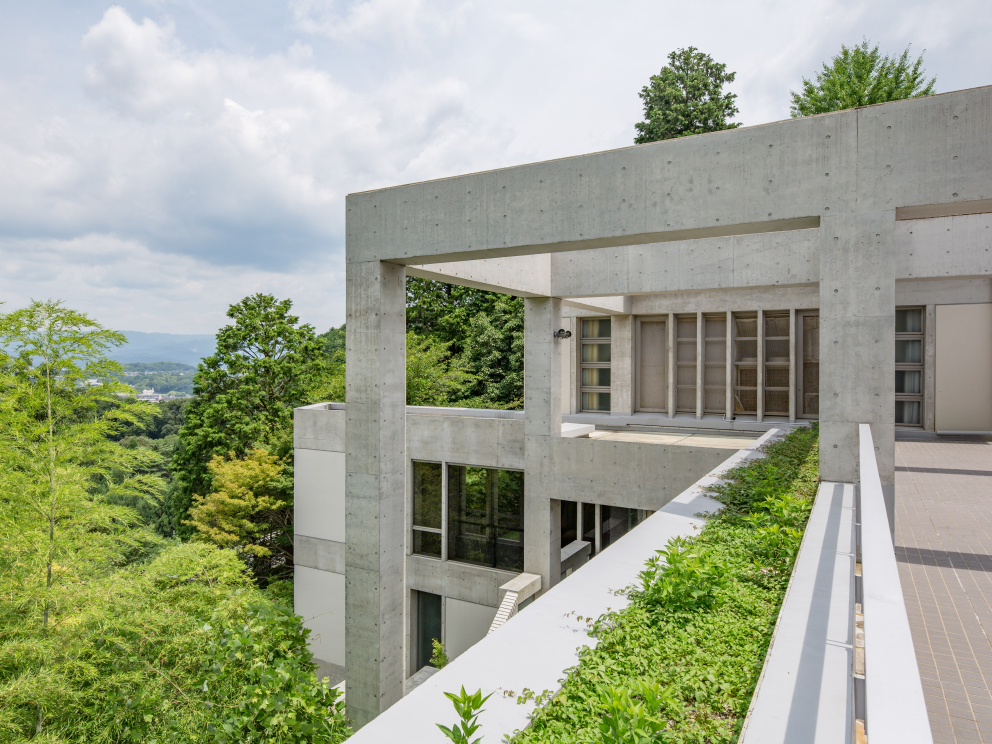
Since the 1990s, enormous resources have been poured into the fight against AIDS in France.
Determined to address the crucial problems of its time, the Foundation is committed to HIV-AIDS research. In 2003, funding to structure policies to fight the pandemic in Africa, the continent hardest-hit by the disease, brought that action to a new level.
As France lags behind in the treatment of autism, the Foundation meets this major public health challenge by supporting education projects: just 23% of autistic children have a place in a school program or a specialized institution.
Over the years, the Foundation expands its actions to encompass research projects as well. In 2012, it will fund the creation of the Pasteur Institute’s Integrated Biology of Autism chair directed by geneticist Thomas Bourgeron.
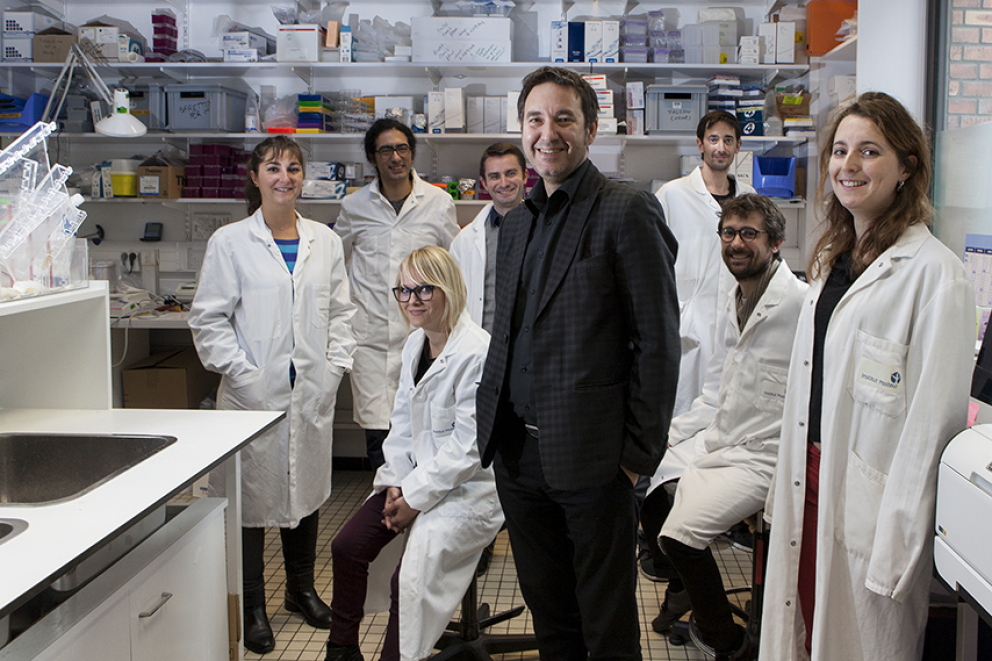
Liliane Bettencourt, who founded the Foundation in 1987, acted as Honorary President since 2012 and had a profound influence on the Foundation, dies on September 21. Tributes come pouring in for a remarkable woman and patron who remains a lasting inspiration for the Foundation’s charitable work.
New support in the area of social inclusion
The Foundation backs new initiatives such as Espérance Banlieues, an organization that works to keep students in disadvantaged neighborhoods from dropping out of school. It creates schools offering alternative educational projects to stamp out school inequality and promote social cohesion. Today Espérance Banlieues has 17 schools from the primary to middle school level throughout France.
Read more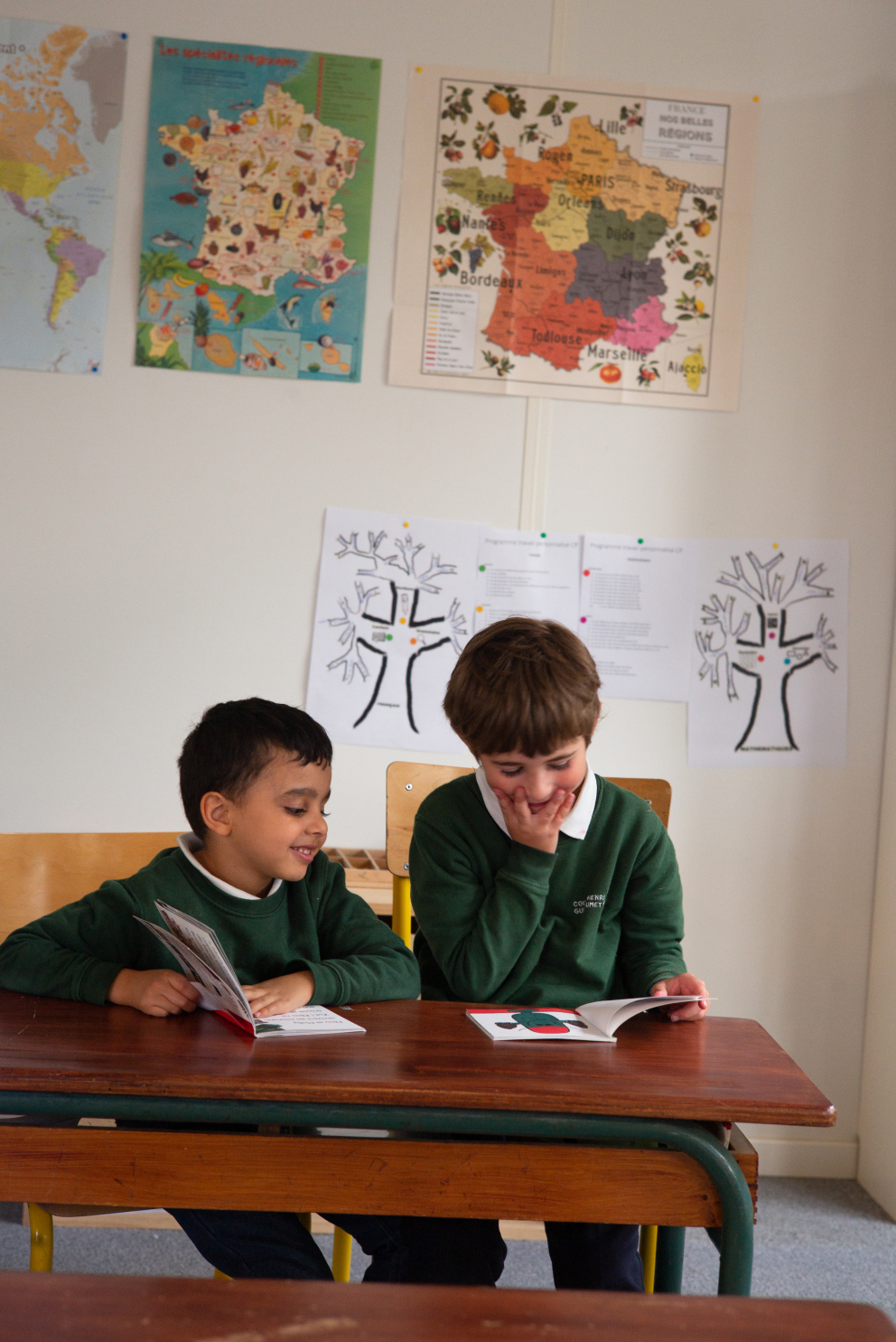
France is bursting with unprotected architectural gems, from houses to churches, bridges and mills. Created in 1996, the Fondation du Patrimoine is committed to safeguarding rural heritage and, by the same token, contributing to the transmission of traditional building craftsmanship and techniques.
The Fondation du Patrimoine is now a major economic player helping to preserve know-how in France, creating or maintaining some 6,000 jobs per year.
How we workIn partnership with the Ecole Nationale Supérieure des Arts Décoratifs (National School of Decorative Arts), the Foundation inaugurates the Innovation and Craftsmanship chair with three goals: introducing the work of those who perpetuate excellent craftmanship, transmitting their know-how and exploring new areas of creation with them.
The chair offers all students in the second to fifth years a training program. Designed as a multidisciplinary dialogue shaking up the traditional links between art and creation, techniques and technologies, the program includes lecture series, workshops, study trips and help for young graduates. It is now an integral part of the school’s training leading to a degree.
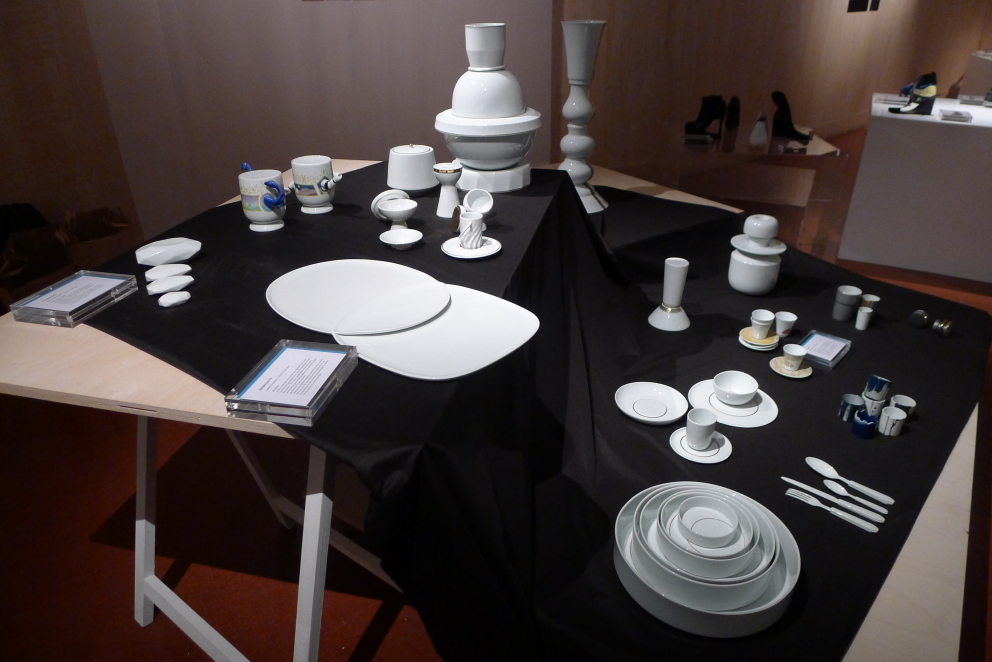
As soon as the pandemic breaks out, the Foundation joins the national solidarity effort to support fragile and vulnerable people. It provides immediate funding to several organizations involved in helping children, families in difficulty, women at risk and the elderly. It also decides to fund Covid-19 research.
As festivals are cancelled, the Foundation brings together choirs that have won the Liliane Bettencourt Prize for Choral Singing and the Maîtrise Populaire of the Opéra-Comique, asking them to reinvent their summer program. Thirty free, socially-distanced outdoor music events take place throughout France. The first edition of the Foundation’s festival is born: Ensemble, enchantons l’été!

Very early on, the Foundation joined the fight against inequality, especially in schools, alongside APFEE (renamed Coup de Pouce-Partenaire de la réussite à l’école in 2015). Set up by a group of teachers to curtail drop-out rates, the association provides struggling kindergarten and first-grade students with after-school reading and writing workshops to make learning fun and develop their self-confidence.
What we do| Solidarity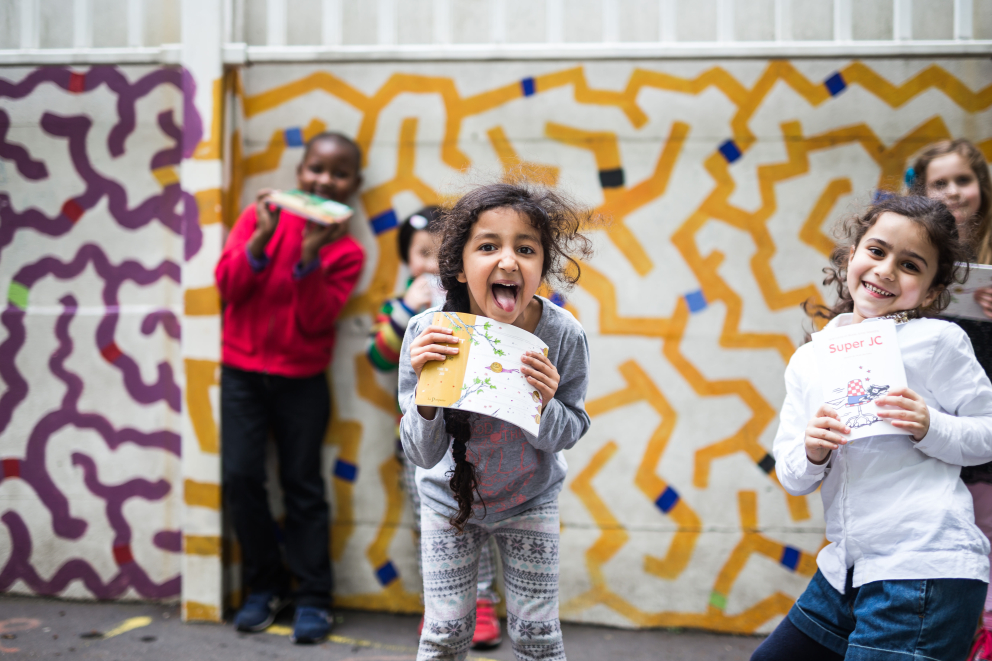
The Foundation announces its support for the Centre de recherches interdisciplinaires (Centre for Interdisciplinary Research, CRI) created by biologists François Taddei and Ariel Lindner. In a building designed for research, teaching and exchanging knowledge, the center will bring together 12 research teams working on three areas: the comparative dynamics of ageing, the dynamics of genomes and synthetic biology, which has a bright outlook in the areas of therapeutics and biofuels.
At the same time, it also strengthens its programs to support education and equal opportunity.
Read more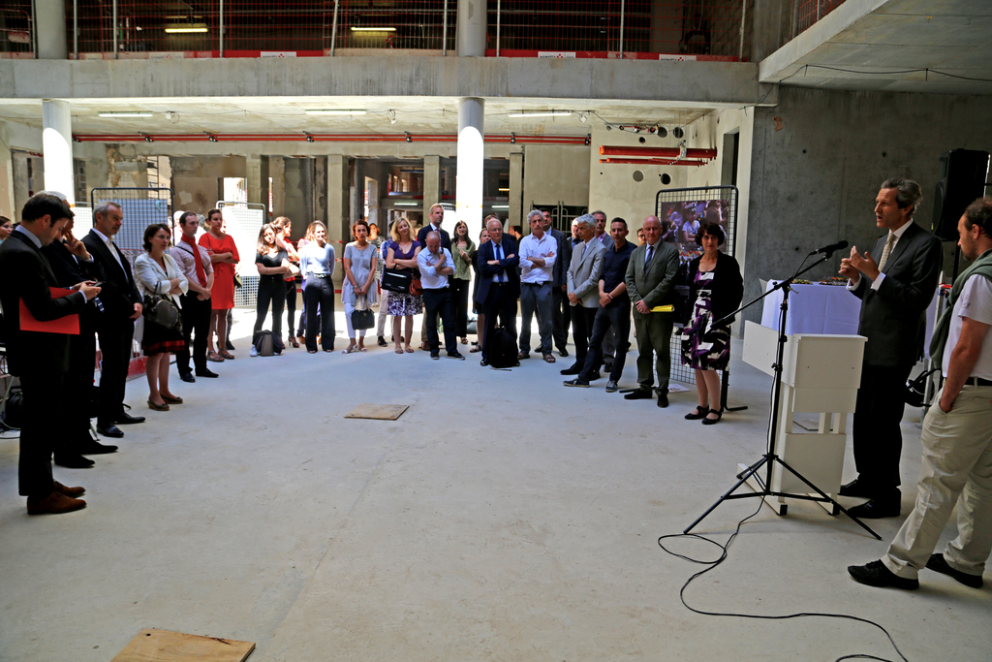
École de l’Inserm Liliane Bettencourt
In 2003, INSERM created a special school – renamed École de l'Inserm Liliane Bettencourt in 2007 – to bring biology research and medical care closer together by encouraging future doctors and pharmacists to obtain dual degrees in both areas. Convinced of the value of this approach, the Foundation is committed to INSERM by funding courses, scientific activities, research and CCA-Inserm-Bettencourt. Renewed until the 2025 recruitment exam, this support is one example of the Foundation’s scientific philanthropy, which aims to promote excellence in French research and improve human health.
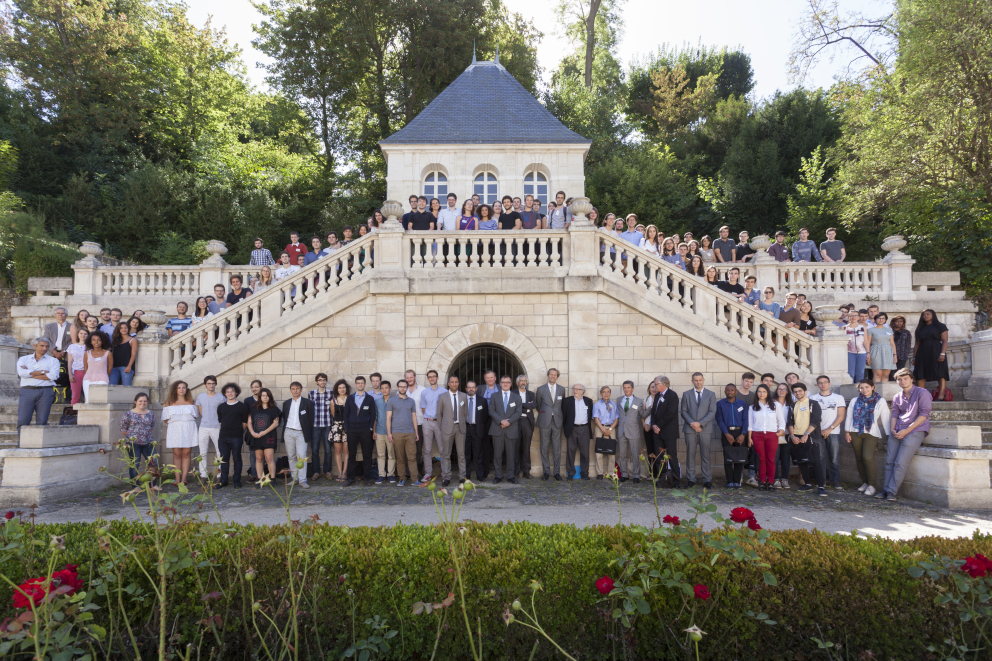
Growing support for education. The Foundation also strengthens its programs to support education and equal opportunity.
A private concert in Notre Dame Cathedral in Paris. The Solistes XXI ensemble —the 2007 laureate of the Liliane Bettencourt Choral Singing Award— Gregorian Choir School of Paris, Sainte-Anne d'Auray Choir School and Notre Dame of Paris Choir School perform at a private concert organized by the Foundation in Notre Dame Cathedral in Paris.
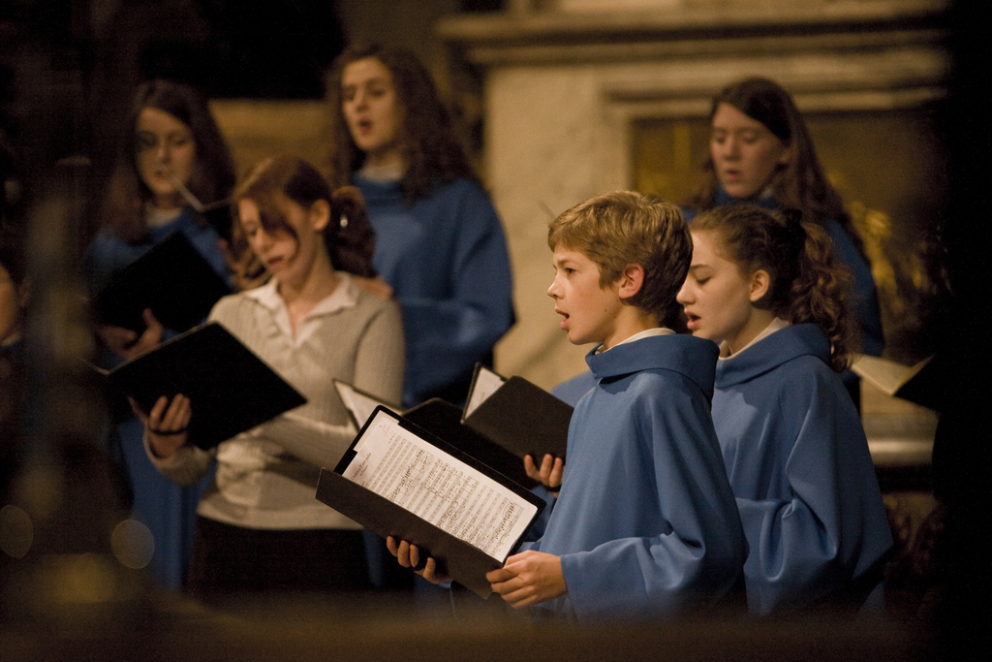
André Bettencourt dies on November 19, 2007.
Parcours recognizes a natural or legal person for a strong commitment and contribution to French craftsmanship. In addition, the Foundation sets up a support network to help the three awards’ winners set up their business, chart a creative path, solve operational challenges, think of a communication strategy and so on.
Read more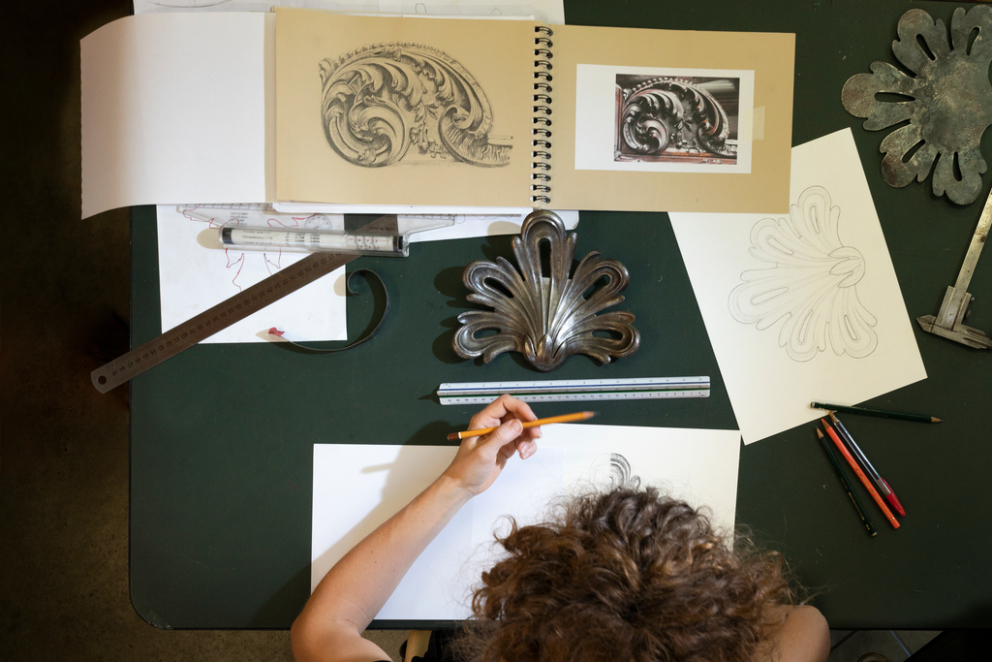
Support for environmental films
The Foundation organize in 2015 – a few days before the COP 21 in Paris – an event at the Cinémathèque Française around Seasons by Jacques Perrin and two other films it funded, Human by Yann Arthus-Bertrand and Ice and Sky by Luc Jacquet.
This event extends the Foundation's commitment to saving the planet through its support for films such as Le Peuple Migrateur (2001), Oceans (2009) and Seasons (2015) by Jacques Perrin.

Fine craftsmanship is at the heart of our history and culture and a precious asset for the vitality and future of creativity. With this in mind, the Foundation is committed to artisans and to creating a prize that recalls the nobility of craftsmanship, rewards excellence, promotes innovation and inspires vocations.
The prize has become an uncontested reference, a label of excellence that contributes to the value of craftsmanship in France and abroad.
Read more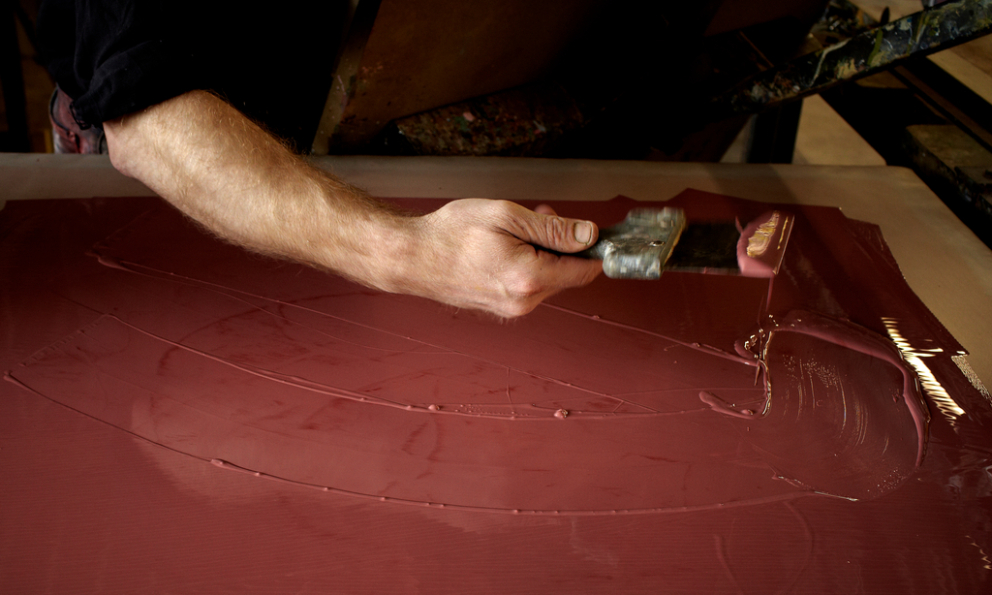
To give its actions wider scope in the area of craftsmanship, the Foundation creates two prizes in the framework of the Liliane Bettencourt Prize pour l’intelligence de la main®: Talents honors an artisan for the production of a work resulting from a perfect command of techniques and know-how in a particular craft. Dialogues recognizes the successful collaboration between a craftsperson and a designer.
Read more
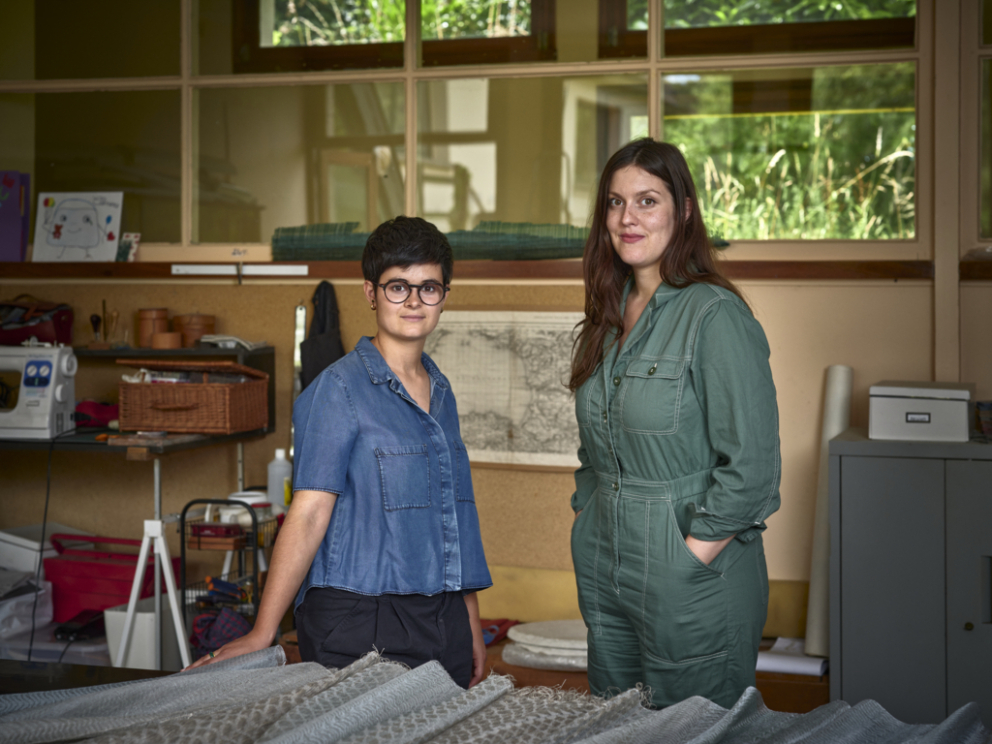
Inauguration of the Campus Liliane Bettencourt de Sport dans la Ville in Lyon
Sport dans la Ville is an association that offers young people in underprivileged neighborhoods various activities instilling them with the values of sport (punctuality, personal commitment, respect for the group, etc.), help with personal development and vocational guidance. In Lyon and the surrounding area, it receives support from the Foundation to create the Liliane Bettencourt Campus, which hosts competitions and sporting events year round. The initiative is so successful that the Foundation will fund the expansion of the Campus in 2013.

The intelligence de la main® award-winners, who possess excellent craftsmanship skills, join forces to create the Laureates’ Association, which aims to promote their crafts. The Foundation backs this initiative, which meets a strong demand for dialogue between the laureates and connections with lifestyle and design influencers.
See all the laureates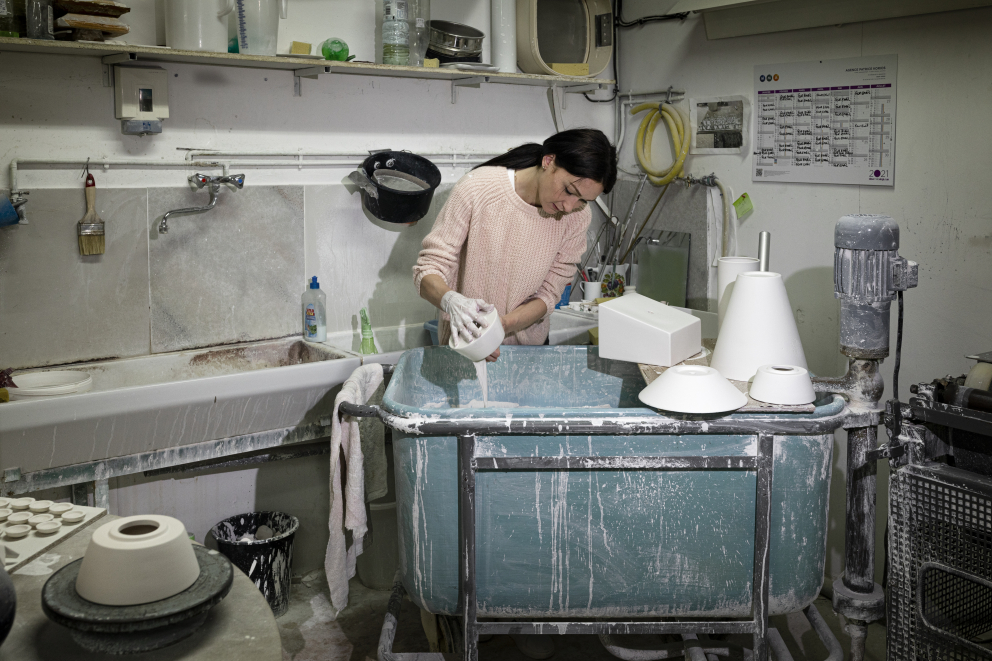
“When you receive a lot, you must love to freely give some back to society.” Those were the words in which Liliane Bettencourt, her husband André and their daughter Françoise Bettencourt Meyers announced the creation of the Fondation Bettencourt Schueller, whose goal is to “take talents to the top” to contribute to the success, influence and reputation of France. In this spirit, the Foundation supports women and men committed to meeting the major challenges facing society in three areas that promote the common good: the life sciences, the arts and solidarity.
The Fondation Bettencourt Schueller is recognized as a public-interest organization devoted to supporting and developing France’s cultural, economic and humanitarian activities. The distinction is granted by a Council of State decree signed by the Prime Minister and the Minister of the Interior.
Our convictions GovernanceThe Foundation becomes a partner of INSERM’s Avenir program, which in 2009 merges with the CNRS’s ATIP program. The program allows young researchers with very high-level projects to set up their own teams by enabling them to return or move to France.
Since 2005, the Foundation’s support has allowed 17 teams to be created in the public research system: 11 by French researchers who came back to France after their post-docs and six by foreigners who moved here. The ATIP-Avenir label is now a recognized criterion of excellence and an uncontested reference to obtain further funding.
Read moreCreated on the initiative of Françoise Bettencourt Meyers, Jean-Pierre Meyers and the Fondation Bettencourt Schueller, the Fondation pour l'Audition funds research for hearing health, an issue that affects 10% of the French population. In 2013, it launches science awards to recognize talented researchers in France and abroad for their scientific advances and discoveries in this field.
Read more
Nicolas Meyers joins the Foundation's Board of Directors.
Strategic changes in social philanthropy. The Foundation's social philanthropy now focuses on 3 areas: social ties, autonomy of the person and structuring the associative sector.
Read more
The Foundation bolsters its commitment to researchers and steps up its efforts to consolidate the assets of French research in the face of society’s major challenges. To do that, it launches a new program to support great talents in life sciences research: Impulscience®.
The program recognizes and supports French researchers and enhances France’s reputation as a country that invests in science. Intended for mid-career life sciences researchers, it aims to preserve their freedom of innovation and offers them long-term support. Each year, Impulscience® selects seven researchers to support over a five-year period.
Impulscience
Chants libres
Following the success of Ensemble, enchantons l'été! the Foundation creates the Chants libres program. From June to December, 10 choirs, choir schools and associations perform at around 100 free events nationwide, including in the most remote areas and for the most vulnerable people.

With this award, the Foundation aims to honor outstanding discoveries and encourage researchers at key points in their careers.
Each year, the Liliane Bettencourt Prize for Life Sciences, awarded for the first time in 1997, is given to a researcher under the age of 45 for his or her outstanding work and contribution to scientific research. It is attributed to a researcher established in France or another European country. So far, the prize has been awarded to 28 laureates, two of whom went on to win the Nobel Prize.
Read more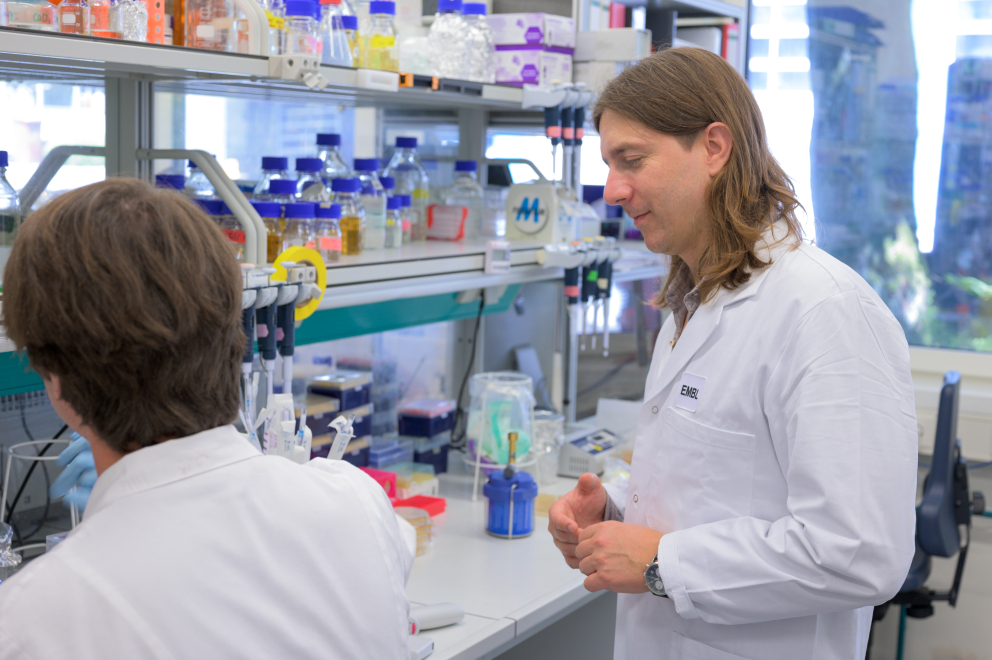
Minister of Culture Christine Albanel awards the Fondation Bettencourt Schueller the title Grand Mécène de la Culture (Great Patron of Culture) for its commitment to craftsmanship.
This honor aims to demonstrate France’s recognition of the main benefactors of French culture —natural persons, legal entities and patrons— whose supportive, generous actions make an eminent contribution to the country’s cultural development.
What we do | Craftsmanship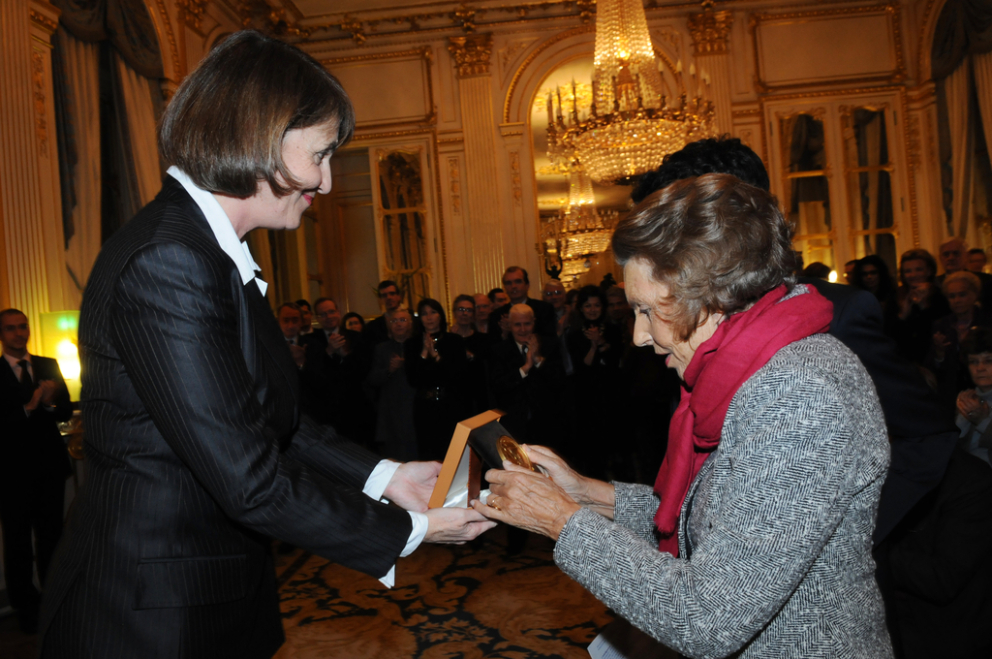
The Foundation and INSERM renew their partnership to train tomorrow’s doctor-researchers. The Foundation renews its funding for 10 years, allowing about 20 medical and pharmacy school students to complete a dual medical-science degree, training them for both research and patient care.
Read more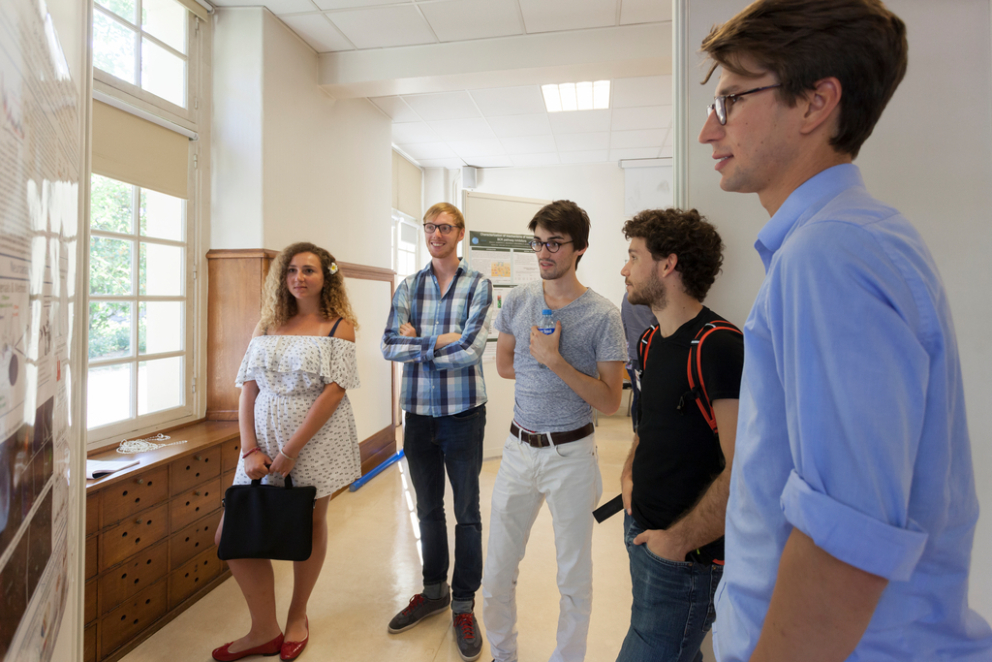
Launch of Regards Croisés, meetings between leaders of associations supported by the Foundation.
The Foundation further expands its social philanthropy, backing over 70 projects and launching a lecture series called Regards Croisés. The lectures bring together about 40 community organizers at the Foundation's headquarters to address various themes (networking, governance, digital communication, etc.). One leader speaks about his or her work at each session, which also includes input from an expert and discussions. Project leaders highly appreciate the meetings, which stimulate ideas, spur changes in practices and forge ties between community leaders.
